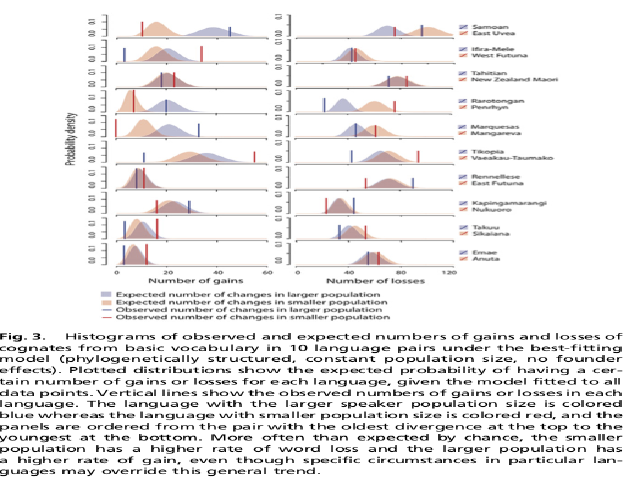Rate of language evolution is affected by population size

Authors:
Citation:
Details:
Published: 2 February, 2015.
Download:
Abstract:
The effect of population size on patterns and rates of language evolution is controversial. Do languages with larger speaker populations change faster due to a greater capacity for innovation, or do smaller populations change faster due to more efficient diffusion of innovations? Do smaller populations suffer greater loss of language elements through founder effects or drift, or do languages with more speakers lose features due to a process of simplification? Revealing the influence of population size on the tempo and mode of language evolution not only will clarify underlying mechanisms of language change but also has practical implications for the way that language data are used to reconstruct the history of human cultures. Here, we provide, to our knowledge, the first empirical, statistically robust test of the influence of population size on rates of language evolution, controlling for the evolutionary history of the populations and formally comparing the fit of different models of language evolution. We compare rates of gain and loss of cognate words for basic vocabulary in Polynesian languages, an ideal test case with a well-defined history. We demonstrate that larger populations have higher rates of gain of new words whereas smaller populations have higher rates of word loss. These results show that demographic factors can influence rates of language evolution and that rates of gain and loss are affected differently. These findings are strikingly consistent with general predictions of evolutionary models.